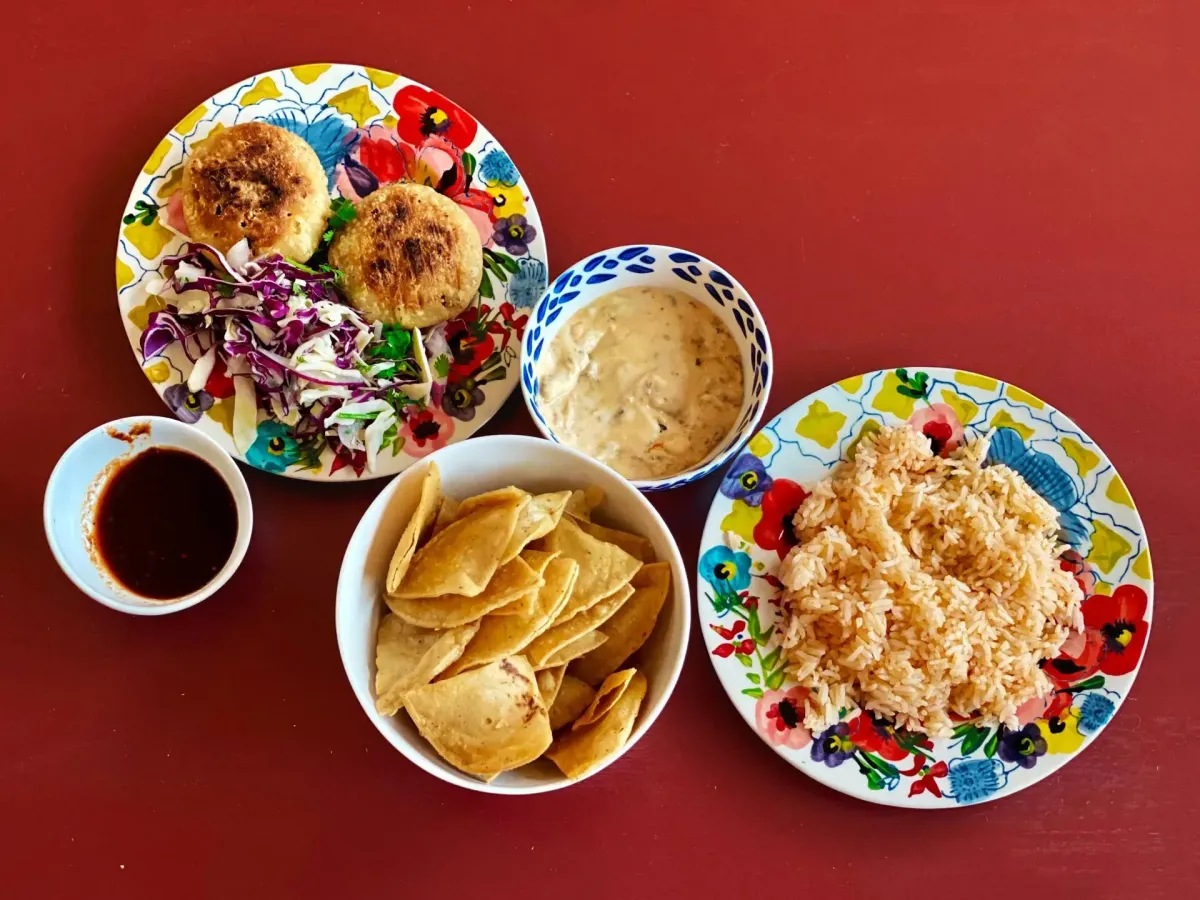READ UP ON THE LATEST HORMONE AND THYROID NEWS!

Should I eat carbs with a slow thyroid?
Before I get into the answer to this question, let me tell you a story.
Before I was certified in health coaching, I tried a low-carb diet. Within a few weeks, I was feeling awful.
I just so happened to have a blood panel scheduled and my doctor immediately asked, "What are you doing differently? Your numbers look really bad." Based on how I was feeling, I didn’t even need the doctor to tell me that.
As with much of my health journey, I was thrown into doing my own research. And what I found out made me really wish I did some research before making such a drastic change to my diet.
Here’s the long and short of it: your body needs carbohydrates. They are an essential nutrient that gives us energy and fuels important functions within the body.
Liver function + thyroid hormones
Our liver helps convert inactive T4 into active T3 hormones so the thyroid can use the T3.
In order to function properly and to help this conversion, our liver needs glucose, which comes from carbohydrates.
If you’re eating a low-carb diet, it’s unlikely you’ll be able to get the glucose your liver needs to make this hormone conversion happen. That will cause a chain reaction, making your thyroid unable to function properly, and leading to a laundry list of challenging and frustrating symptoms.
Hormone conversions
When this T4 to T3 hormone conversion isn’t happening, our bodies might start relying on other forms of energy to get the conversion going… and often times that energy is cortisol and adrenaline. This means your body thinks it’s in a stress response, which can be disastrous for the thyroid.
When this happens, you might feel exhausted but you can't sleep, because your body is trying to use your cortisol and adrenaline hormones to compensate for not having enough thyroid hormone or thyroid function.
And, to make matters worse, when you're in this vicious cycle where you're constantly utilizing cortisol for your energy levels, and you're not really using your thyroid hormones, you store body fat. It's inevitable and it especially in women.... it goes to the belly. You can avoid this state in part by making sure you’re consuming enough carbohydrates.

How & when to adjust your carb intake
I really encourage you to be very careful and very cautious with choosing a low-carb diet unless your thyroid is really under control. Even then, carbs should never be fully avoided unless you’re under direct supervision from a dietician or other medical professional with a good reason to reduce that nutrient.
I also advise taking baby steps when you decide to increase your carb consumption where you're doing a little bit more carbs each day. This is so important so that your body has time to adapt.
The best carbs for a healthy thyroid
While carbs are certainly not the enemy, there are carb-rich foods that are better for the thyroid than others. When you’re planning a thyroid-friendly diet, choose:
Starchy carbs, such as potatoes, sweet potatoes, and butternut squash
Fruit, such as bananas, berries, and avocado
Gluten-free grains (if you can tolerate grains), such as oats, brown rice, and quinoa.
I hope this information helps you and can give you some answers about carb consumption in relation to hypothyroidism or a slow thyroid. If you have symptoms like weight gain, hair loss, fatigue, anxiety and so on.....be very cautious cutting your carbs too low.
If you need help with that, then please reach out to me.

Should I eat carbs with a slow thyroid?
Before I get into the answer to this question, let me tell you a story.
Before I was certified in health coaching, I tried a low-carb diet. Within a few weeks, I was feeling awful.
I just so happened to have a blood panel scheduled and my doctor immediately asked, "What are you doing differently? Your numbers look really bad." Based on how I was feeling, I didn’t even need the doctor to tell me that.
As with much of my health journey, I was thrown into doing my own research. And what I found out made me really wish I did some research before making such a drastic change to my diet.
Here’s the long and short of it: your body needs carbohydrates. They are an essential nutrient that gives us energy and fuels important functions within the body.
Liver function + thyroid hormones
Our liver helps convert inactive T4 into active T3 hormones so the thyroid can use the T3.
In order to function properly and to help this conversion, our liver needs glucose, which comes from carbohydrates.
If you’re eating a low-carb diet, it’s unlikely you’ll be able to get the glucose your liver needs to make this hormone conversion happen. That will cause a chain reaction, making your thyroid unable to function properly, and leading to a laundry list of challenging and frustrating symptoms.
Hormone conversions
When this T4 to T3 hormone conversion isn’t happening, our bodies might start relying on other forms of energy to get the conversion going… and often times that energy is cortisol and adrenaline. This means your body thinks it’s in a stress response, which can be disastrous for the thyroid.
When this happens, you might feel exhausted but you can't sleep, because your body is trying to use your cortisol and adrenaline hormones to compensate for not having enough thyroid hormone or thyroid function.
And, to make matters worse, when you're in this vicious cycle where you're constantly utilizing cortisol for your energy levels, and you're not really using your thyroid hormones, you store body fat. It's inevitable and it especially in women.... it goes to the belly. You can avoid this state in part by making sure you’re consuming enough carbohydrates.

How & when to adjust your carb intake
I really encourage you to be very careful and very cautious with choosing a low-carb diet unless your thyroid is really under control. Even then, carbs should never be fully avoided unless you’re under direct supervision from a dietician or other medical professional with a good reason to reduce that nutrient.
I also advise taking baby steps when you decide to increase your carb consumption where you're doing a little bit more carbs each day. This is so important so that your body has time to adapt.
The best carbs for a healthy thyroid
While carbs are certainly not the enemy, there are carb-rich foods that are better for the thyroid than others. When you’re planning a thyroid-friendly diet, choose:
Starchy carbs, such as potatoes, sweet potatoes, and butternut squash
Fruit, such as bananas, berries, and avocado
Gluten-free grains (if you can tolerate grains), such as oats, brown rice, and quinoa.
I hope this information helps you and can give you some answers about carb consumption in relation to hypothyroidism or a slow thyroid. If you have symptoms like weight gain, hair loss, fatigue, anxiety and so on.....be very cautious cutting your carbs too low.
If you need help with that, then please reach out to me.

CALL US TODAY! (314) 226-3137
Content, including images, displayed on this website is protected by copyright laws. Downloading, republication, retransmission or reproduction of content on this website.

